Uganda is an East African country, known for its diverse natural landscape from snow-capped mountains, falls to amazing wildlife. Safaris and gorilla trekking (at the Bwindi Impenetrable National Park) are some of the popular activities here, along with rare bird sightings. In this post, I will share my experience from the country as well as some of the essential Uganda tips that you must know prior to planning and booking your trip!
** Disclaimer: This post contains affiliated links which means that purchases made through these links reward Bey of Travel a small commission without any additional charge for the purchaser.**
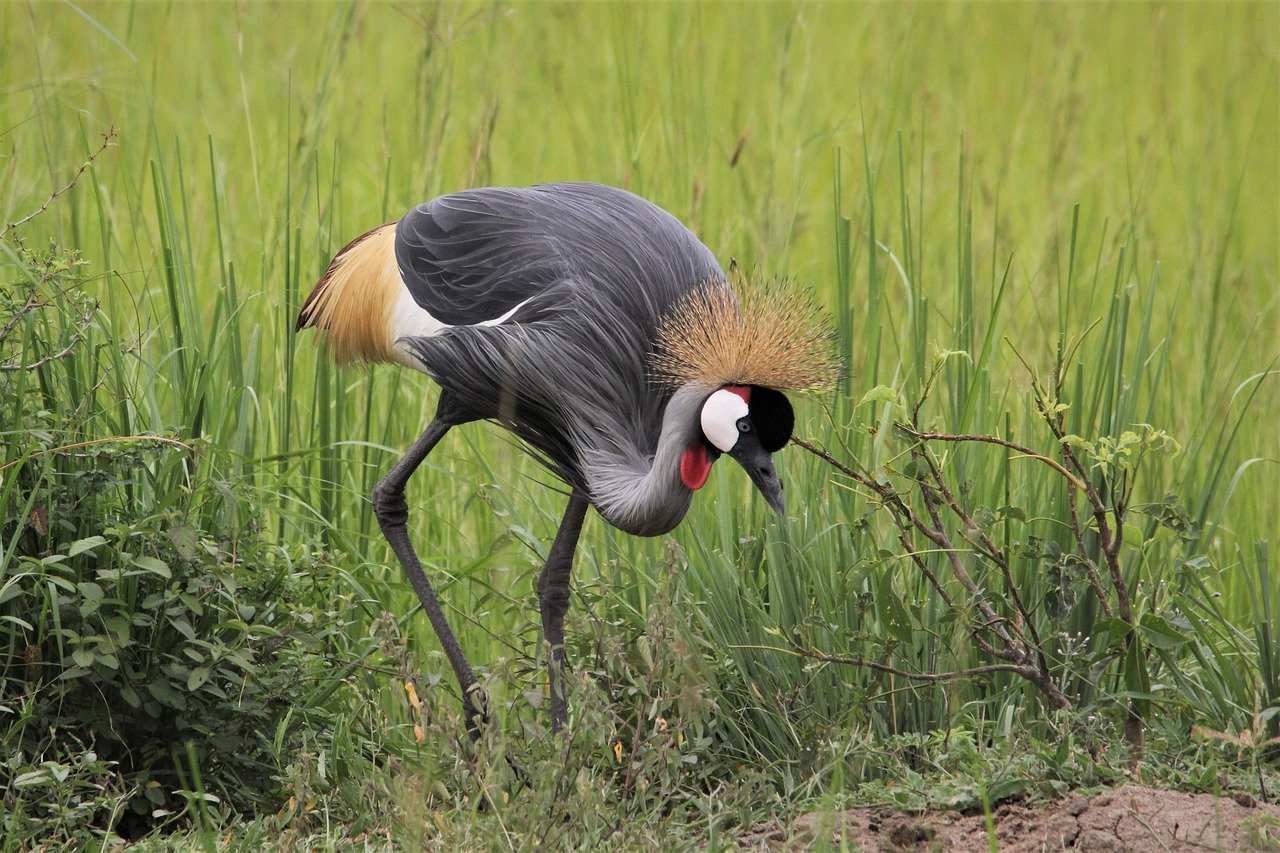
Essential Uganda tips that you must know
Uganda: Quick facts
Uganda is officially known as the Republic of Uganda. It is bordered to the east by Kenya, to the north by South Sudan, to the west by the Democratic Republic of the Congo, to the south-west by Rwanda, and to the south by Tanzania.
The largest city, as well as the capital of the country, is Kampala. It has a population of over 8.5 million.
Official languages in Uganda
The official languages are English and Swahili. English is widely spoken and understood everywhere.
Travel Visa for Uganda
Regardless of your passport, you will need a tourist visa to travel to Uganda. You can apply and get e-visas online. Here is the website to do so – Directorate of Citizenship and Immigration. This is the official visa application portal and it costs $50 USD.
Many group tours might provide this as a service as part of the package, but you don’t have to, as the process is entirely online and easy to apply.
Be aware of fraudulent agents/vendors that ask you to pay huge amounts of money for visas. Also, keep in mind that a visa on arrival is no longer available.
As always ensure you have your valid passport, and other identification documents on you when you travel.
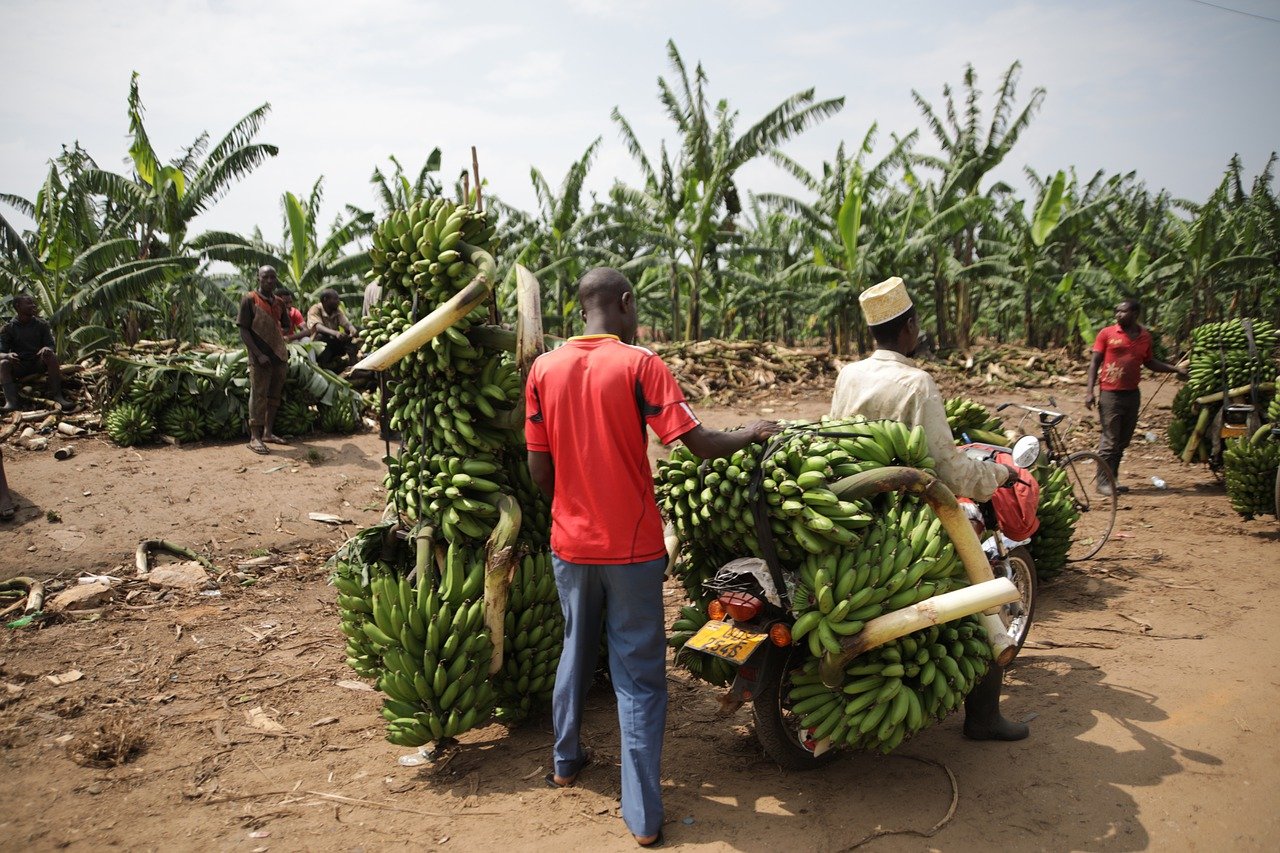
Vaccinations for Uganda
Uganda has a list of vaccinations that are required to be taken, and you will need to show your certificate for entry (or to get a visa).
- Yellow Fever vaccination certification is needed. It is required for visa approval as well as for border entry as it is checked at the crossing
- Other vaccinations include – DTP, Hepatitis A & B, Typhoid, Cholera, and Malaria.
Because we traveled in 2021, I can share the additional covid related requirement. You will need a negative PCR test, 72 hours before traveling to Uganda. Be mindful of connecting flights and hours. Here is the latest from Uganda on travel requirements, and I recommend checking it prior to your visit
Keep in mind, your entry can be denied without test results.
Plus you will have to register on Uganda’s online registration system before departing about your trip plans. Boarding may be refused without a receipt. Those who test positive may be transferred to a public or private hospital or permitted to isolate at a designated hotel if they have mild or no symptoms
For your return, you can get a PCR test in most of the bigger cities. These tests start at $30 USD. Some places will provide results in a few hours, and some could take up to a day. I recommend getting these tests done a day before you fly out so that you are less stressed.
Currency and conversion in Uganda tips
The official currency in Uganda is the Ugandan Shilling. You can easily exchange Euros, British Pounds, US Dollars, and other major currencies locally or at the airport before departing.
You also find exchange facilities at various bureaus de change, ATMs, and banks in major cities. As always carry a nominal amount of cash.
If you have to transfer money, Western Union is an option. Uganda’s Crane Bank, Ecobank, KCB Bank, Finca, etc., are the banks that have that option.
Wifi in Uganda
You can find free WiFi in the hotels, restaurants, and cafes in Kampala. The further you move away from the major cities power outages and internet connectivity issues are common.
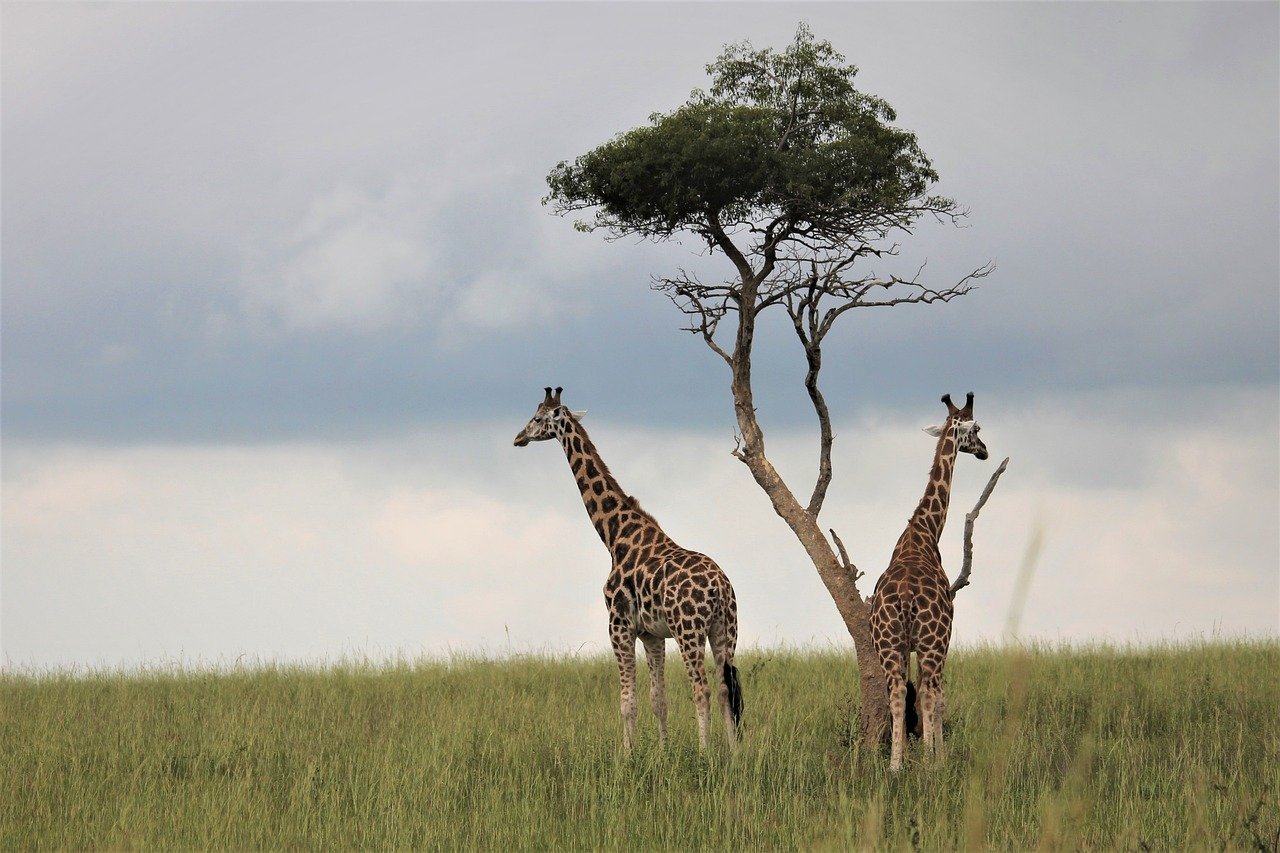
Budgeting for Uganda
When it comes to food and general sightseeing, Uganda is not super expensive. You can get a nice meal (with beer) for $6+ USD. Street food is even cheaper (even less than $2 USD).
Hotels and decent accommodation will cost around $50 USD for two. You can also book dorms and shared spaces for less than $10 USD.
Transport isn’t too expensive either. You can use minibusses also known as matatu (shared rides) which costs around 50 cents or less. Do keep changing for bus rides. Private taxis are also widely available, and they are usually cheaper than what you expect in major cities all over the world.
If you are in Uganda for gorilla trekking, then this is an activity you have to plan for ahead of time, and also spend upwards of about USD $600 for a permit ($700 for foreign nonresidents).
When visiting national parks, keep in mind that there are entry fees as well. The Uganda Wildlife Authority (UWA) has laid out these set fees.
You can expect to pay around $40 USD. They differ in different parks and sanctuaries. Check the latest National Park Fees in Uganda here.
Safaris and tours in Uganda
Most people visit Uganda for the famous mountain gorillas and trekking in Bwindi National Park along with the Virunga Mountains and Murchison Falls.
As we mentioned about gorilla trekking it is an expensive affair as compared to other travel items.
Packaged tours are available for a week, up to 25 days. It includes accommodation in a resort or camping tent and there are expert local guides that take you around to experience gorillas in their natural habitat. (Flights are not included).
Typically a 7-day tour has round transportation from Kampala, and they start at $1350 USD per person.
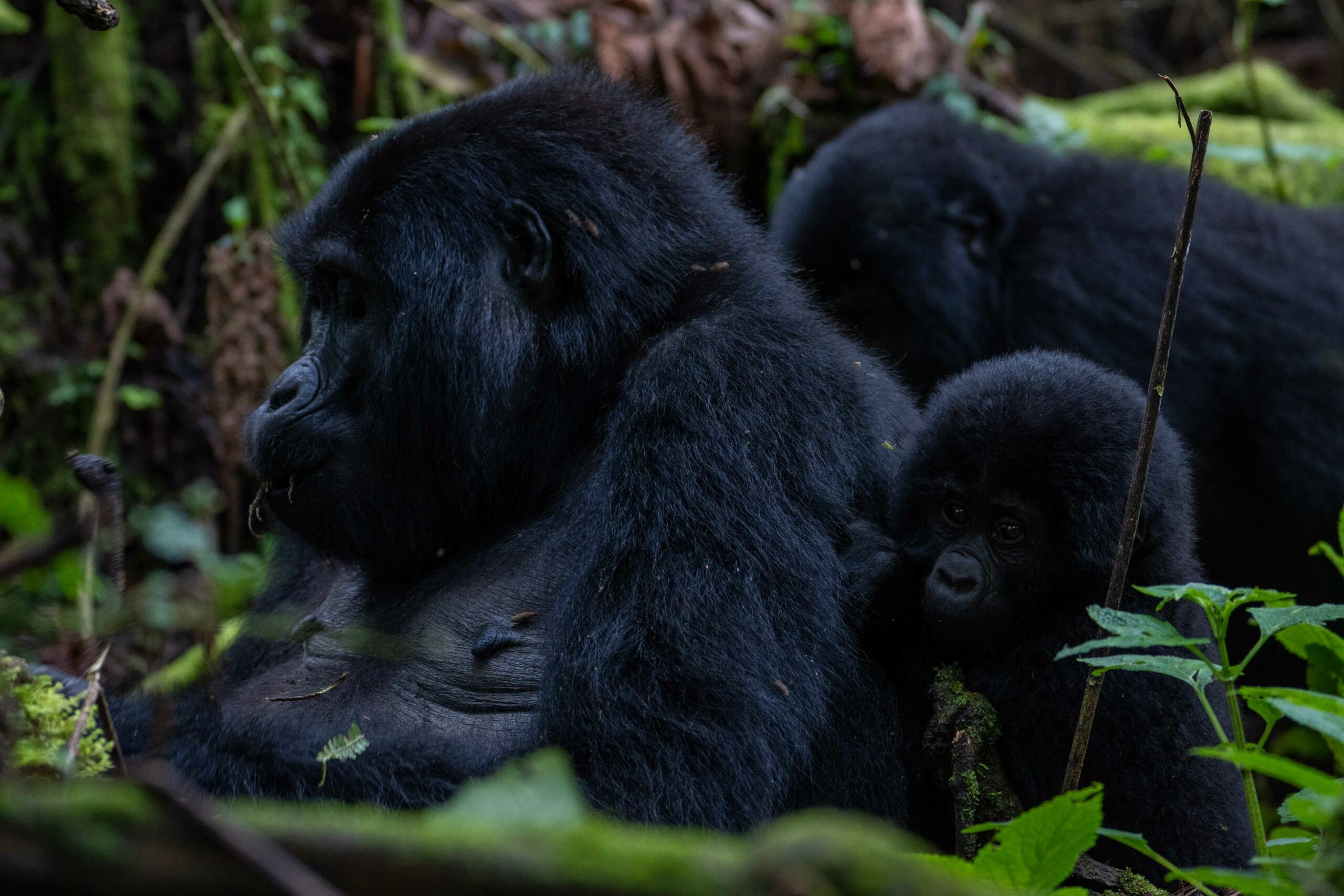
What to see in Uganda?
Uganda was called the ‘Pearl of Africa’ by Winston Churchill and is known for greenery, and wildlife.
It is the only place in the world where you can go mountain gorilla trekking. As it has a gorilla population of approximately 340 which accounts for almost half of all mountain gorillas in the world. Plus they are home to a lot of national parks.
Geographically, Uganda is in the African Great Lakes region, as well as the Nile basin area making it one of the stunning landscapes to experience in Africa.
As a destination, it is less touristy than some of the other African nations too.
Bwindi Impenetrable National Park is one of the major attractions in Uganda. The park comprises 32,000 hectares and is well known for its biodiversity. It is home to over 160 species of trees and hundreds of fern species.
Bwindi Impenetrable National Park is also where you can go for gorilla trekking.
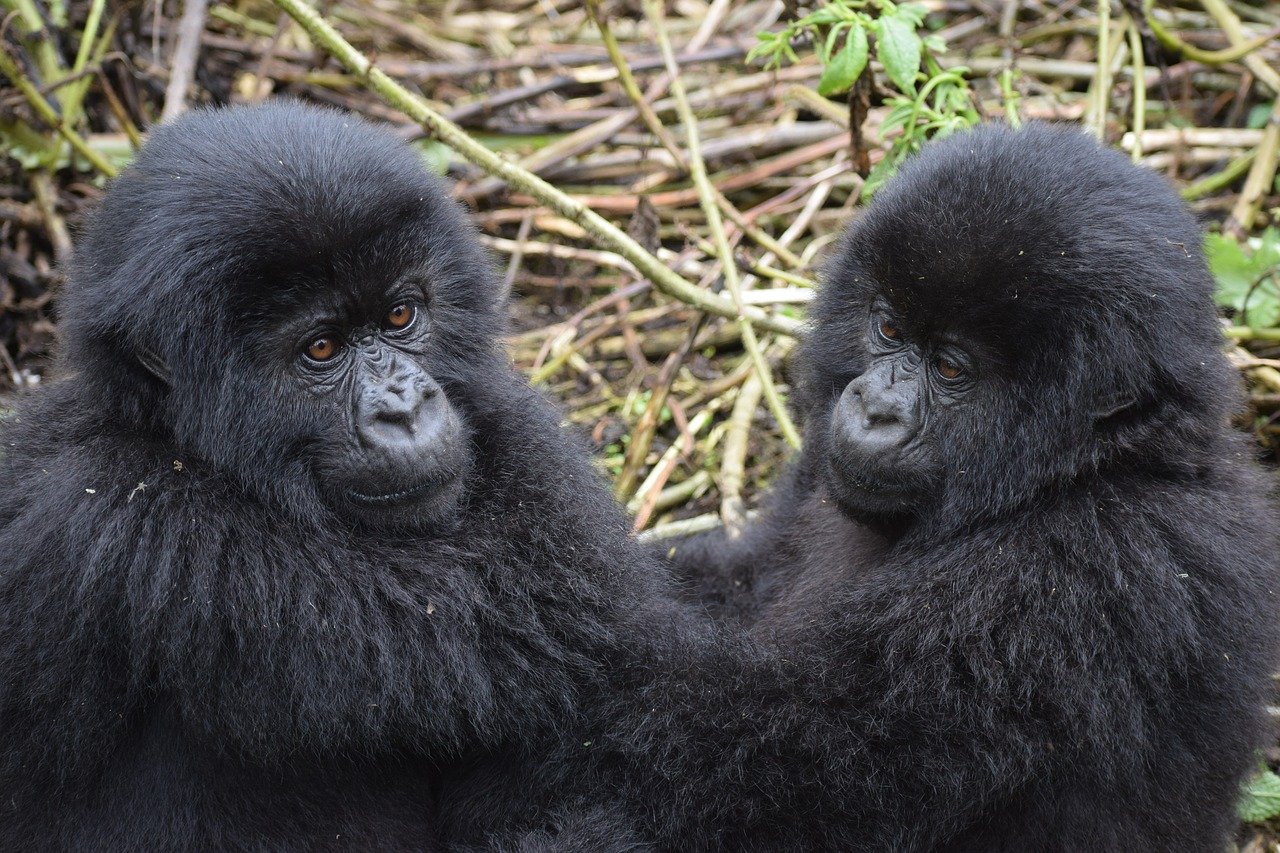
To the south of this national park lies Lake Bunyonyi. With beautiful hills, tiny islands, and the chirping of birds this stunning lake is a must add to your Uganda itinerary.
Lake Nyamirama is another stunning lake in Uganda. It is a great popular hiking destination with mesmerizing views!
For wildlife sightings, head to the Queen Elizabeth National Park and check out tree-climbing lions – isn’t it pretty cool?
You can also pay a visit to cute chimpanzees at the Kibale Forest National Park and Budongo Forest.
To see White Rhinos, make your way to the Ziwa Rhino Sanctuary.
For a variety of Uganda wildlife exploration, head to the quintessential Murchison Falls National Park, which is home to many animals including lions, elephants, bird species, and more. You can book guided safari tours here for an amazing wildlife experience.
Uganda is also an active outdoors lover’s playground. You can go on numerous hikes including enjoying trails in and around the Rwenzori Mountains and Mount Stanley (the tallest in Uganda).
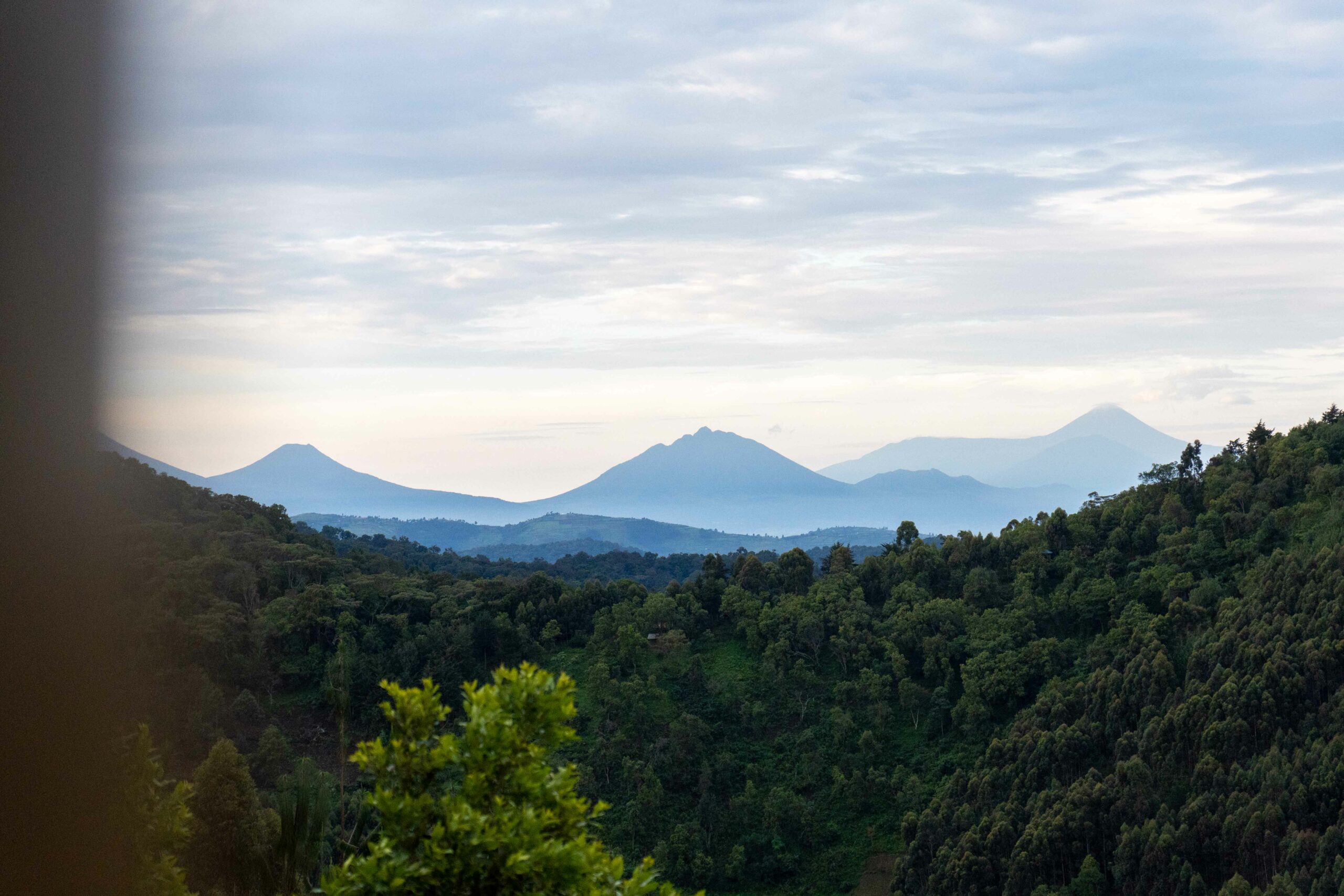
Safety tips for Uganda
Uganda is a safe country, but just like most places in the world petty crimes like theft, credit card fraud, etc., are common.
Foreign women generally attract a lot of attention in Uganda – as they like to talk and try to be friendly. Although not harmful or threatening in any way, one has to be mindful of the situation and try to steer away by ignoring politely.
Also, avoid walking into unknown alleys and neighborhoods at night. It is important to note that in Africa it is uncommon for women to walk around alone.
Food and water in Uganda
You must try local cuisine in Uganda. Meals consist of potatoes of different kinds, beans, tomatoes, cabbage, and cooked bananas. They also prepare sauce out of peanuts and sprinkle it or satay it over the cooked food.
Such a meal is very affordable at less than $2 USD, it is a steal, with local ingredients.
If you are looking for something spicy and international, head to an Indian restaurant. You will easily find naan and butter chicken in Uganda and the food is really good and delicious. You can find them as street food and in proper dining restaurants.
As always, street food is cheap!
Do not miss out on tasty fresh fruits when in Uganda.
In terms of your budgeting for your trip, food will account for a little amount. Keep in mind that most tour packages with accommodation will have meals (with breakfast and dinner) included. Always check all the inclusions on your tours.
Avoid drinking tap water in Uganda!
Use a filter bottle to filtrate or buy mineral/bottled water – just to be safe. The water may not suit many, especially if you are from western countries.
It is perfectly fine to use tap water for cleaning, bathing, and washing.
Tipping in Uganda
It is normal to tip in Uganda. You can tip at the restaurant, to the porter and most safari and tour guides will expect a small tip after the sightseeing is done.
Guides and hospitality staff are also super friendly and helpful if you need any assistance.
For tipping, try to keep Ugandan Shilling (instead of USD) as this will be most valuable for them.
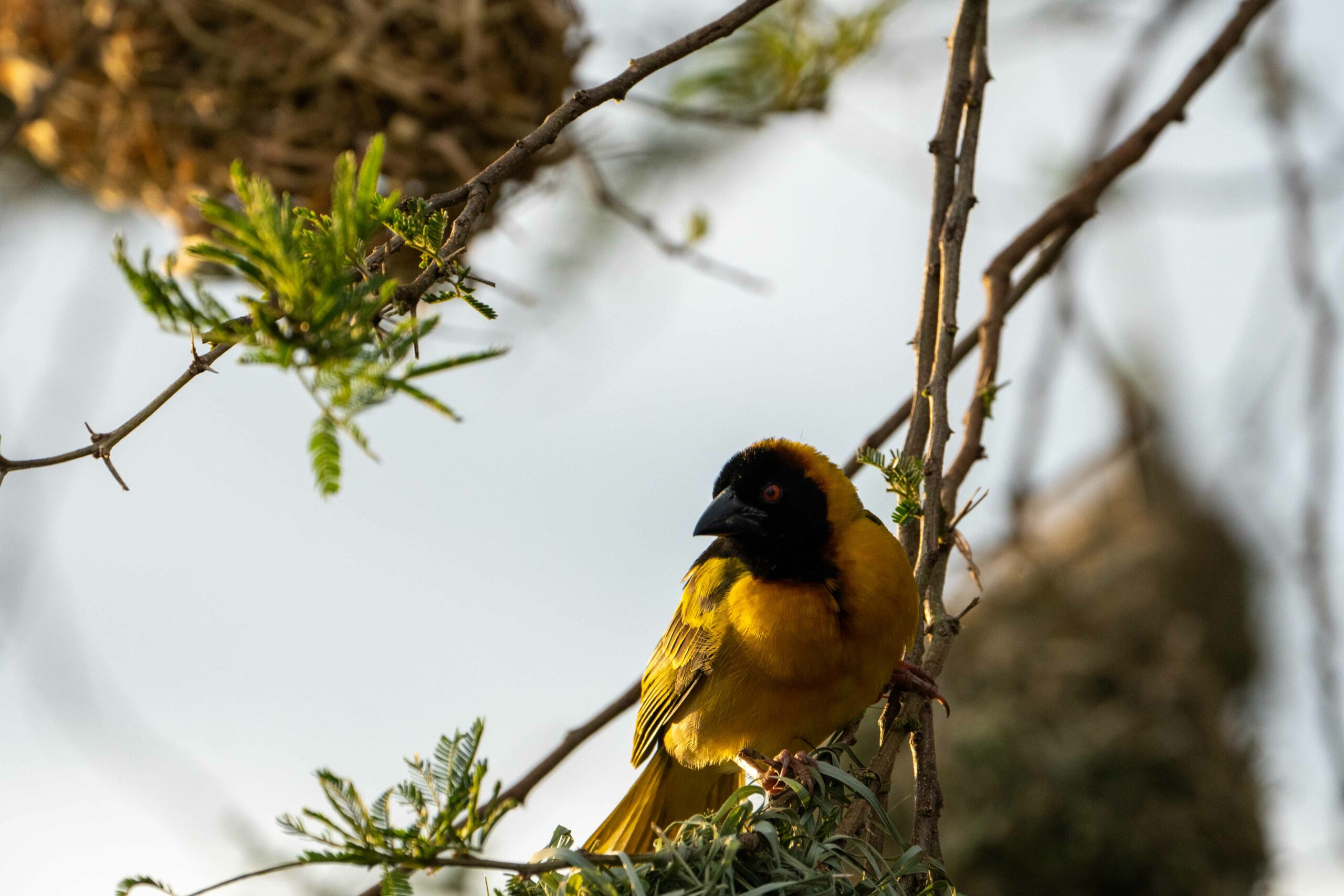
Seasons in Uganda
There are two seasons in Uganda – wet and dry. And they come in 2 sets. So,
- dry seasons are from December to February and another one from June to August. December to February can get very hot and can be super dry.
- wet seasons are from March to May and then from September to November.
Best time to visit Uganda
As a destination, you can visit Uganda at any time of year!
Based on our trip research, the best time for Uganda for safaris is during the dry season from June to August and from December to February.
During this time, the weather is good to be outdoors (minus rains), plus you can also easily sight wildlife and camp.
This is also the major tourist season in the country (but it never really gets too crowded).
In the wet seasons, traveling may be challenging due to heavy rains, muddy terrain, and road and nature trail access.
What to pack for a trip to Uganda?
For your road trip to Uganda, do remember to pack for the rains as well as comfortable clothes that are culturally appropriate. Here are some packing essentials for you
- 2-3 casual tops (avoid tight-fitting clothes), but long sleeves are great
- 1-2 bottoms, jeans, pants, etc.
- 1 sweater, light jacket, fleece, sweatshirt, or long sleeve shirt.
- 2-4 pairs of socks
- 1-2 pairs of comfortable walking shoes.
- 1 raincoat/poncho/umbrella for wet seasons.
- 1 reusable water bottle.
- Sunscreen.
Do carry your camera, battery backup, and chargers for your electronics.
If you love to hike and go on treks, choose a good pair of hiking boots.
Insect repellents are recommended as malaria is prevalent in Uganda.
In Uganda, it is not required for women to cover their heads or wear long dresses/skirts, but if you want to avoid unwanted attention then do carry some.
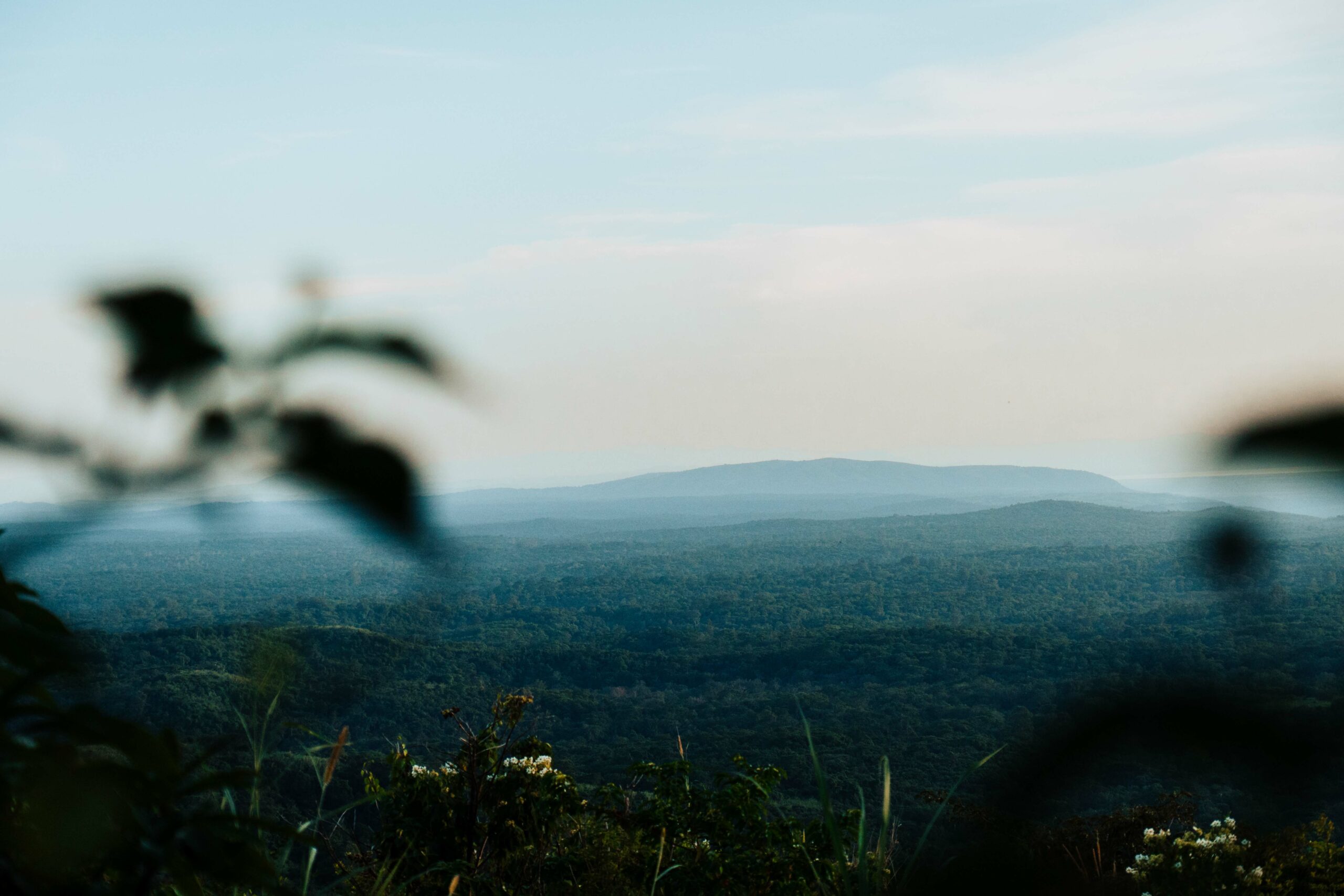
Adaptors and plugs for Uganda
The standard voltage in Uganda is between 230 to 240 volts. Their electrical pin sockets are similar to the UK – they use the three square pins.
Highly recommend carrying a universal travel adaptor and a converter. The converter will be useful to plugin U.S. or North American electronic appliances.
What to shop in Uganda for souvenirs?
In Uganda, you can shop for traditional African handicrafts like wooden masks, locally made sculptures and decorate cane baskets, etc. It is quite reasonable in terms of pricing, and at the same time, you can support local communities as the income goes to the artists 100%!
Batik paintings are also quite popular to bring back home. If you are into clothing, you can pick up bright-colored fabrics and outfits with stunning African patterns. They will be easier to carry too if you are traveling light.
Sports and entertainment in Uganda
Football is the national sport of Uganda, and they have won two gold, three silver, and two bronze medals at the Olympics. These matches bring in a lot of crowds where people enjoy football predictions and entertainment.
Boxing, cricket, and rugby are also quite popular.
Cultural dances like Runyege and Entogoro dances by Batoro, Batuku and Banyoro of Western Uganda, Kitaguriro by Banyankole people, Bwora and Otole dances by Acholi people of Northern Uganda bring in a lot of spectators. You can check out these traditional performances in Kampala.
Should you visit Uganda?
Although there are tons of amazing African destinations, from Masai Mara in Kenya, Cape Town in South Africa, or Marrakesh in Morocco – Uganda as a whole will be a delightful experience for its landscapes, wildlife, and nature!
If you need any more tips and advice on Uganda travel, do let me know in the comments!
PIN – Uganda Tips
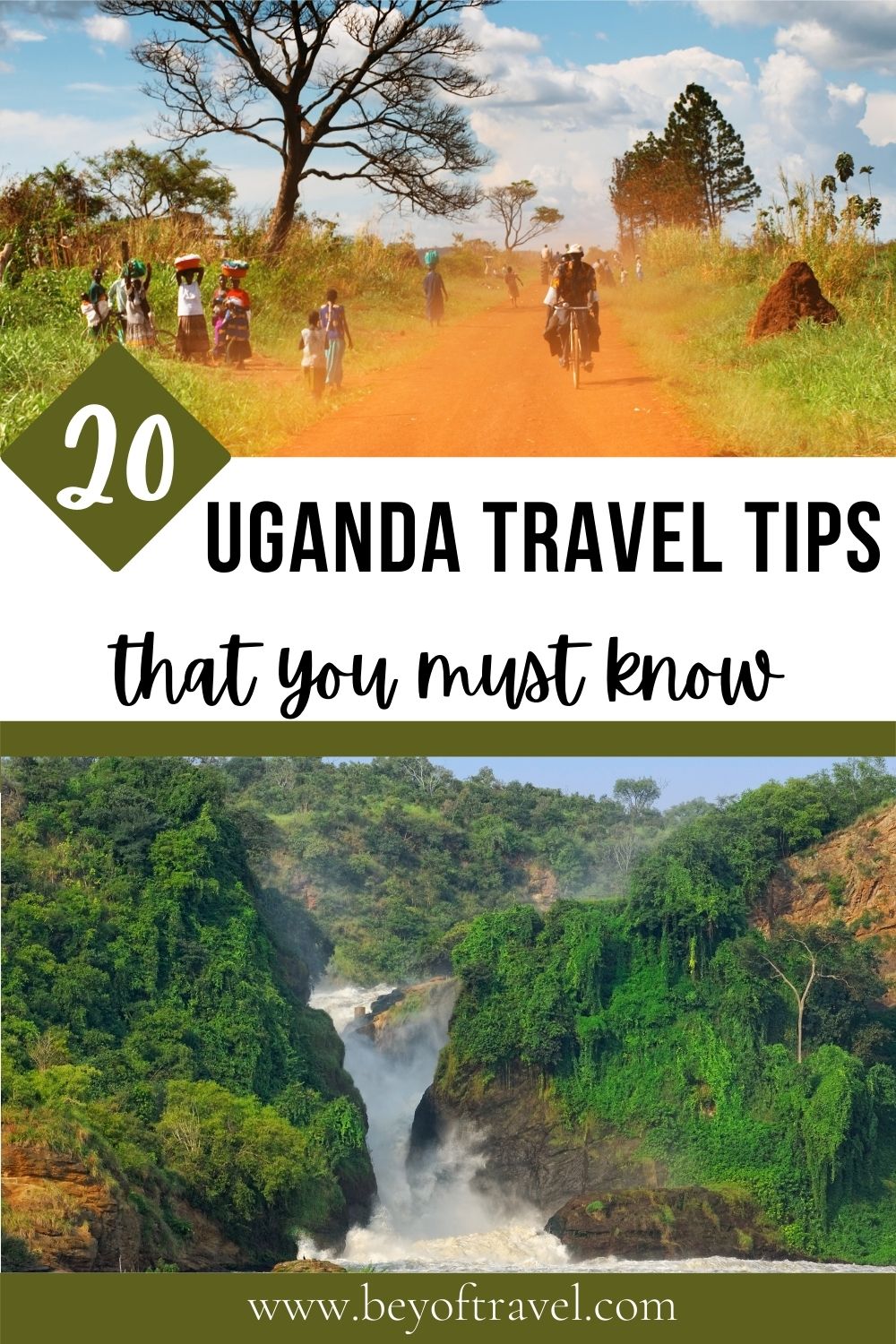

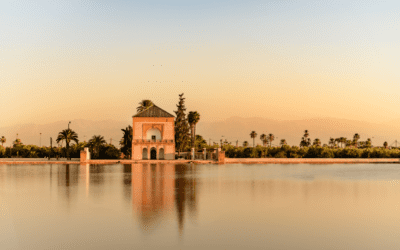
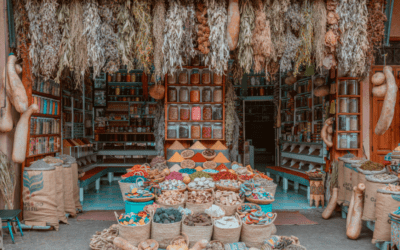
0 Comments